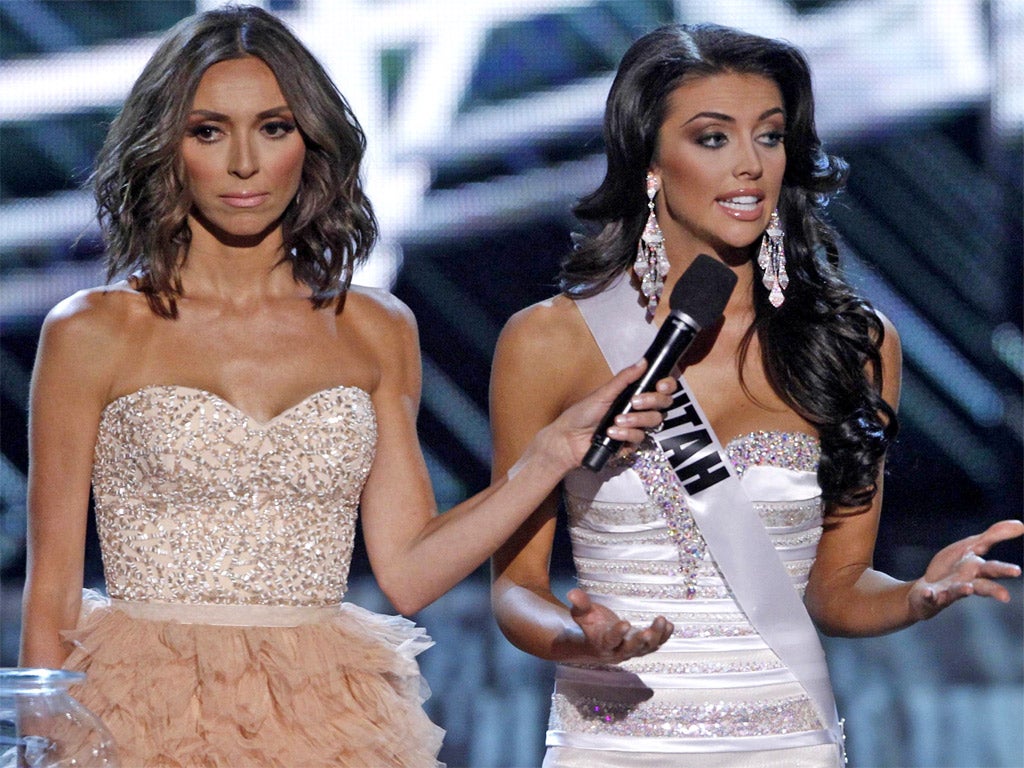As the first queer woman to compete in Miss USA, let me tell you what pageantry means in 2020
There's a reason why no one has ever come out during a pageant before


Your support helps us to tell the story
From reproductive rights to climate change to Big Tech, The Independent is on the ground when the story is developing. Whether it's investigating the financials of Elon Musk's pro-Trump PAC or producing our latest documentary, 'The A Word', which shines a light on the American women fighting for reproductive rights, we know how important it is to parse out the facts from the messaging.
At such a critical moment in US history, we need reporters on the ground. Your donation allows us to keep sending journalists to speak to both sides of the story.
The Independent is trusted by Americans across the entire political spectrum. And unlike many other quality news outlets, we choose not to lock Americans out of our reporting and analysis with paywalls. We believe quality journalism should be available to everyone, paid for by those who can afford it.
Your support makes all the difference.This year, I am making history as the first openly queer woman to compete in the Miss USA pageant.
My decision to come out was part of a process of self-acceptance and healing. I do not believe that anyone is under any obligation to share their sexuality with the world, but as a bisexual woman from Utah, I recognize that some communities have greater need for LGBTQ+ representation, and I felt it was important for young LGBTQ+ people to see that their sexuality is nothing to be ashamed of.
After I chose to come out, many people asked why it matters that I’m bisexual. There’s a reason why no one has ever come out during a pageant before. Many LGBTQ+ people live much of their life in secrecy, fearful of discrimination. Pageantry is historically conservative, and LGBTQ+ people are often found helping backstage, afraid to step out and be seen for who they are. This is unacceptable. I believe that all people, regardless of their sexual orientation, or mental health diagnoses, deserve the same opportunities to be on the stage.
Miss USA provides access to a global platform. And I recognize that when I walk the national stage this spring, I have been given the opportunity to influence future generations’ ideas of what constitutes beauty.
That is why it is so important to me to share my experiences both with bipolar disorder and my sexuality. These are subjects that used to carry so much shame for me, but now I realize that no mistakes were made with how I was born, and these parts of me that are less common in society are also what make me beautiful.
Pageantry can be an exercise in empowerment. To succeed in modern pageantry, it’s no longer just about your walk — you have to know who you are. The rigorous preparation and training cultivates strength and ambition, and as Miss Utah USA 2020, I am excited to see the ripples of change that follow in the industry as more women find their authentic voice.
Some will argue that pageantry isn’t suited to the 21st century or doesn’t lend women — or queer people — the opportunity and respect they deserve. But nothing could be further from the truth. Last year, Zozibini Tunzi, Miss Universe 2019, closed her winning answer with the words: “What we should be teaching these young girls [is] to take up space. Nothing is as important as taking up space in society and cementing yourself.” Women are understanding the space they have always deserved and are claiming it, and pageantry today reflects that societal evolution.
I never wanted to be known as “that bi girl”. That’s why I took so long to come out. But when I realized that I have a chance to be a voice for the underrepresented, my decision to come out became very clear. If any of my experiences with mental health or my sexuality can save people the years I spent looking for answers, then this will all be worth it.
As an artist and public speaker, my emotions are the palette from which I create. Bipolar disorder allows me to experience a wide range of emotions, and my bisexuality allows me to have the capacity to experience romantic feelings for a wider range of people. My emotions are what make me beautiful. I am not crazy for feeling differently than others, and even though my emotions may be less common, they are still very normal. Many people experience life the way that I do, and we are all valid in our own experience.
I hope that people can look past my sexuality and diagnosis to see me for who I am as an artist. I am a speaker, actor, singer, writer, improv comedian, painter, and dancer. I hope that as I share my self-expression with the world, it encourages others to do the same, and to see past the labels that separate us.
Ultimately, we are all more alike than we are different. As Miss Utah USA, and a competitor in Miss USA 2020, I am not asking the world to be more like me — I am asking the world to be more like themselves. I am my own why, and you are yours.
Rachel’s platform #IAMWHY encourages people to be their own advocate and abolish mental health stigma by speaking up about their mental health experiences online
Join our commenting forum
Join thought-provoking conversations, follow other Independent readers and see their replies
Comments